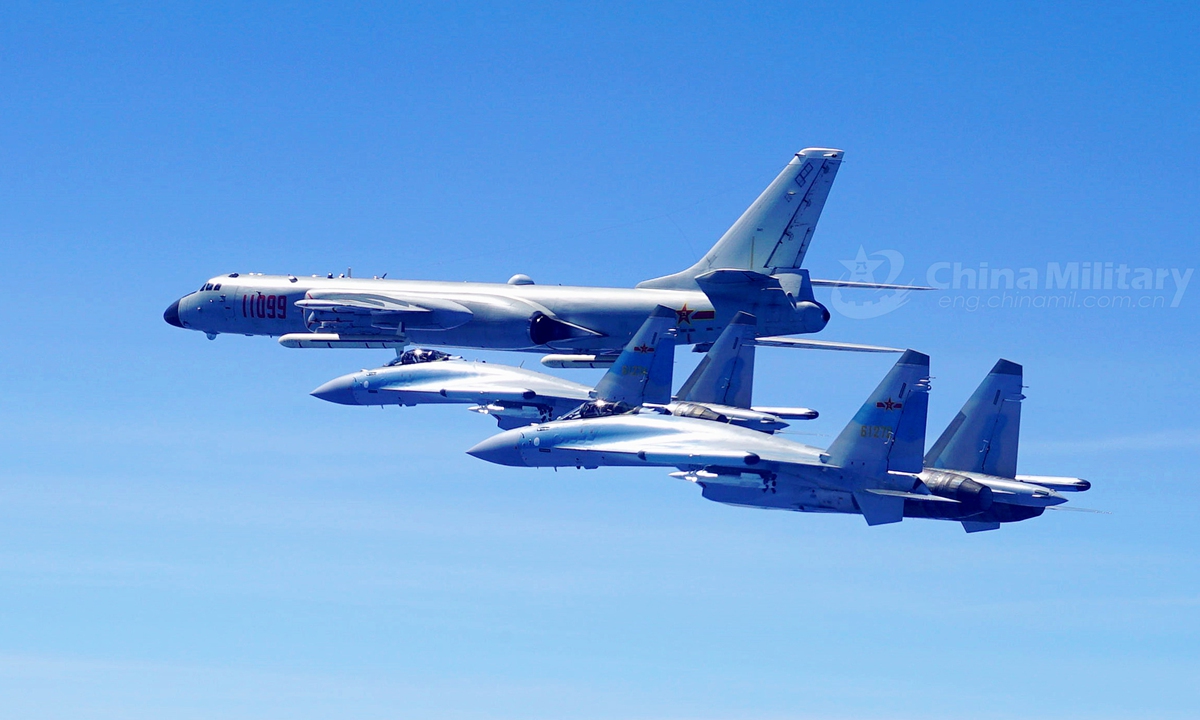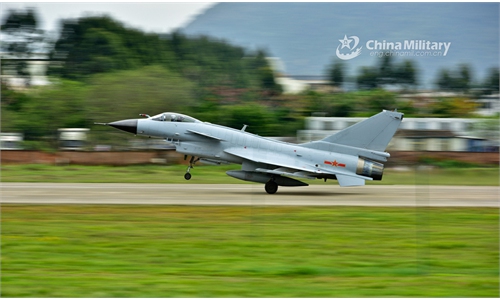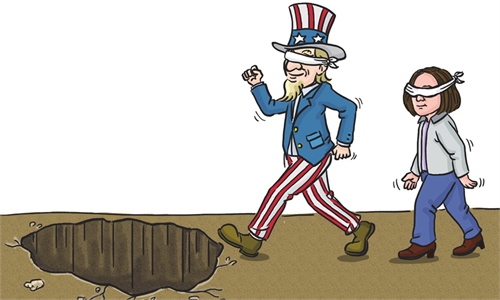
Two Su-35 fighter jets and a H-6K bomber fly in formation on May 11, 2018. The People's Liberation Army (PLA) air force conducted patrol training over China's island of Taiwan on Friday. Su-35 fighter jets flew over the Bashi Channel in formation with the H-6Ks for the first time, which marks a new breakthrough in island patrol patterns, said Shen Jinke, spokesperson for the PLA air force.Photo:China Military
Some people have accused me of being weak because I advocated that the People's Liberation Army (PLA), the US military and military of Taiwan island should all abide by the principle of "not firing the first shot" amid these sensitive and tense days.
Some have interpreted my words out of context to use them attacking me. Some see war as a simple matter, without realizing that a war is about casualties, destruction of cities and people suffering - it is nothing like watching a war movie. They are also ignorant that war is only a last resort.
The current situation across the Taiwan Straits is very tense. The situation on the frontline is becoming more complicated with risk of miscalculation increasing. All sides applying principle of "not firing the first shot" is a necessary constraint in order to prevent accidentally triggering a war.
By saying "not firing the first shot," I do not mean that Beijing would tie its hands when separatist forces cross a redline. Adopting non-peaceful means to prevent "Taiwan secession" should be another discussion. The Democratic Progressive Party authorities will definitely face a military strike from the Chinese mainland if it misinterprets the situation and develops any official relations with the US that is prohibited by the Anti-Secession Law. If the situation turns into an all-out war, the separatists' criminals would either be eradicated or eventually brought to trial on the mainland.
It is wrong for some people to say that it's useless that the PLA only conducts exercises, but takes no real action. One function of the military is to deter, and the best way to win a confrontation is to subdue the enemy without a fight. Both the PLA drills and its encirclement sortie around Taiwan island have made a difference by repeatedly stressing the bottom line set by the Anti-Secession Law.
The Taiwan local authorities are clear that the PLA will immediately attack the island if they cross the redline. They have been playing the "salami slicing" tactic just to avoid a devastating punishment. But the PLA's recent exercises aim to dispel any illusion that such a tactic might materialize these secessionists' ultimate goal of "Taiwan secession."
Now the Chinese mainland, the US, and the island of Taiwan do not want an immediate showdown at the current stage where the three sides step up game and compete with willpower. At such point, a war could break out unexpectedly if a gun goes off accidentally. This would mean a high degree of uncertainty. An emphasis on the principle of "not firing the first shot" by three sides will certainly help to manage the situation.
However, the situation might be out of control if tensions keep escalating, making the risks for war grow higher and higher.
The Chinese mainland must be fully prepared for the worst. We surely do not want a war to break out now. But we should be the one that is least afraid of the situation spiraling out of control as we are defending the territorial integrity of our country and the one-China principle, which is recognized by the whole world. If increasing provocations by the island of Taiwan and the US eventually lead to a breakout, then China will have no choice but to resolutely fight a just war.
The author is editor-in-chief of the Global Times. opinion@globaltimes.com.cn



